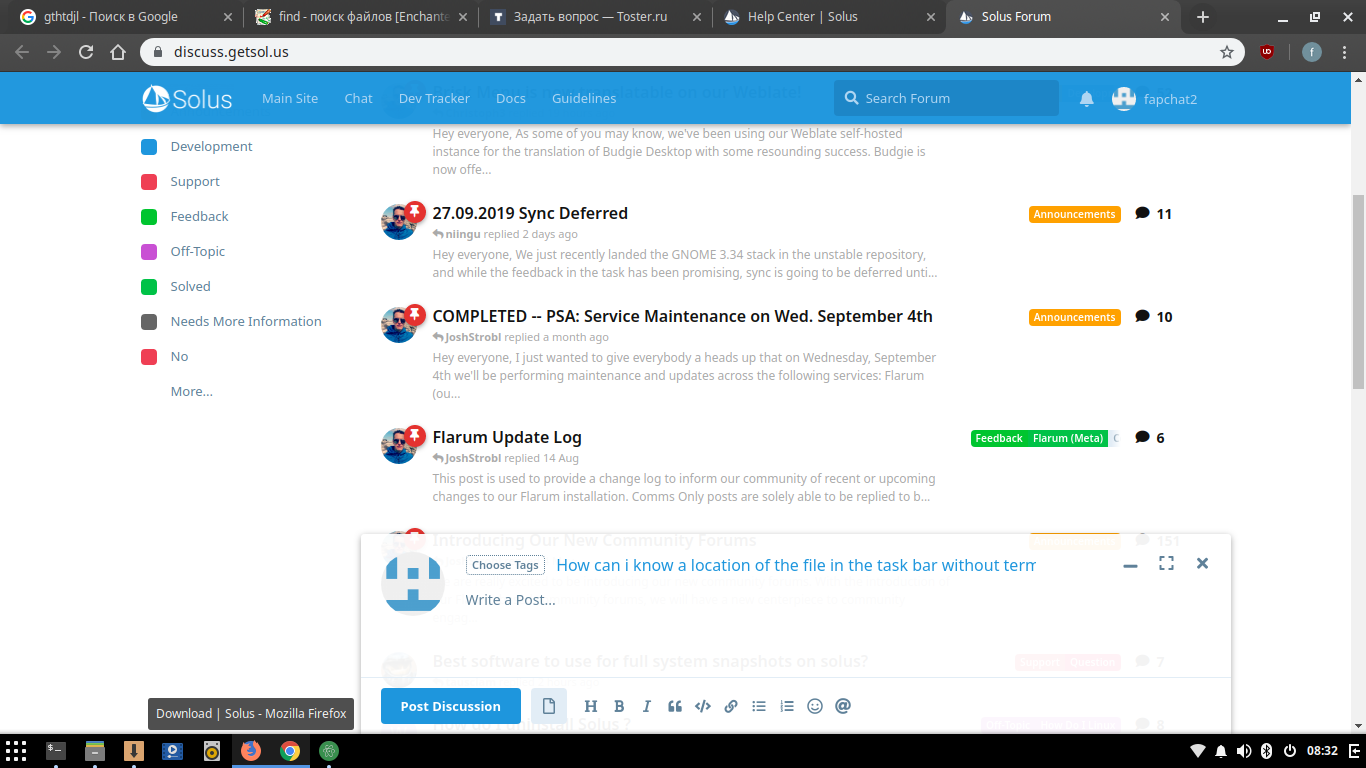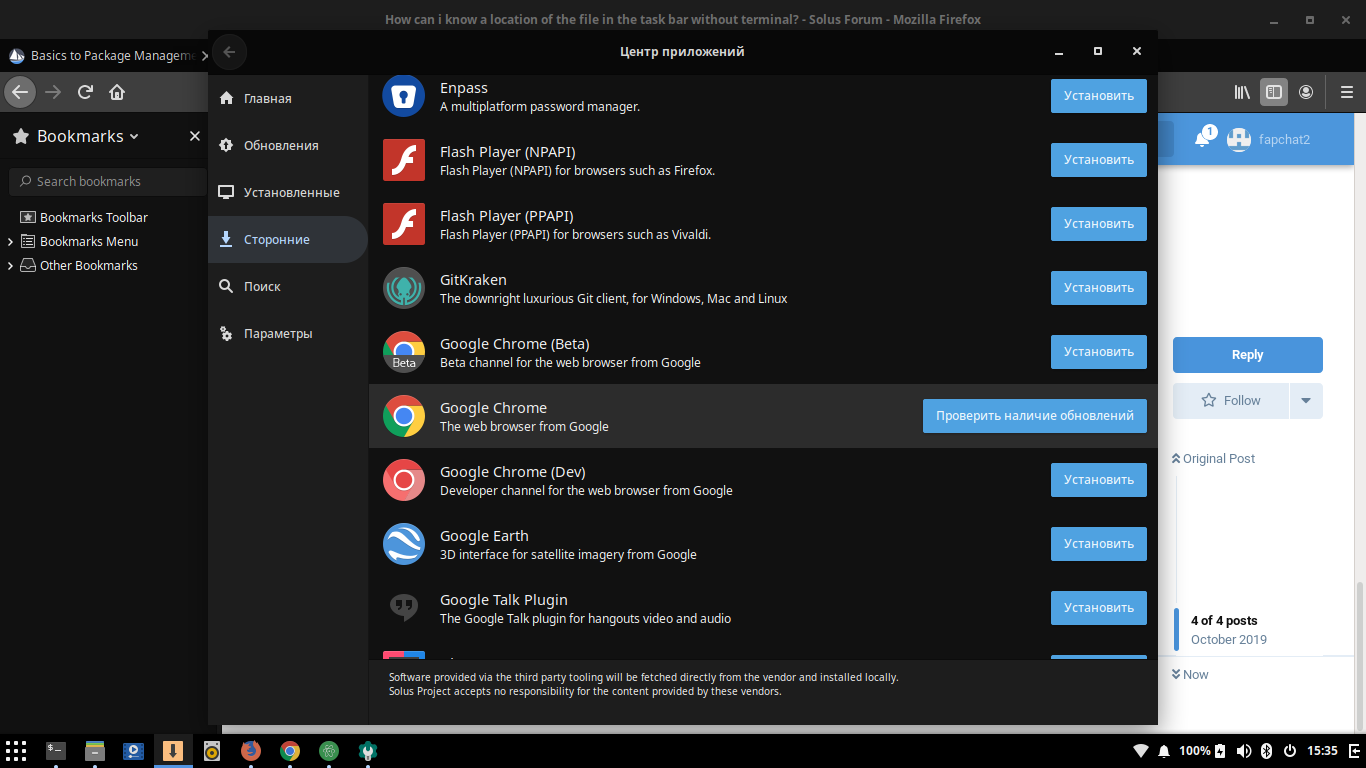Its important for me to know a location of Firefox or Google for example
How can i know a location of the file in the task bar without terminal?
fapchat2 "Many programs (the binaries/scripts) end up in /bin or /usr/bin with other parts in various configuration directories (often in/under etc) as you already noted.
For any specific command you can checkout whereis
whereis prog_name
and it will give you some information about where this command is to be found. You can also try which
which prog_name
Also, this graphic and explanation/examples might be helpful." (Source - Superuser.com)
In this case running the command to "find" Firefox and Chrome would look as follows:
scott@solus ~ $ whereis firefox
firefox: /usr/bin/firefox /usr/lib64/firefox
scott@solus ~ $ whereis google-chrome
google-chrome: /usr/share/man/man1/google-chrome.1.gzHope that helps! And remember Google/DuckDuckGo/etc is your friend, cheers!
Are talking about these?

They are saved in /usr/share/applications/.
If you want to modify them use menulibre.
sudo eopkg it menulibre
After installing you can find it on menu "Menu Editor"
After being modified the output with be at ~/.local/share/applications/
with a name like xxxx.desktop.
Do you mean the location of downloaded packages for install?
I don't understand... Can you explain please?
Linux is not windows. Binaries (=executable files) go in standard locations.
You'll find most of them in /usr/bin, a few go in /bin. The ones that require elevated privileges go in /usr/sbin or in /sbin.
So if you really don't want to use a terminal (which it the convenient way for such things, as a lambda user who doesn't use the terminal shouldn't care where the files are installed), just open Files and browse these folders and look for filenames that look like what you want (double-click them to execute them and see if it is what you are looking for).
But just the hard way to do things and less reliable than commands that can return you the info immediately.
- Edited
fapchat2 All those listed from 3rd party repos...(Normally check update return noting I never had any success with that )...better you download latest from source/3rd party website and install in /opt
for example goto ~/Downloads in terminal and
tar -xf <fileName>.tar -C /opt don't forget to copy *.desktop files to ~/.local/share/applications/
from solus repo you can search package in Dev Tracker for example
https://dev.getsol.us/source/firefox/ and installing location details click on pspec_x86_64.xml
and the software's original location under source : in package.yml (i guess this is the one you are interested in)
if you wanna try in terminal
eopkg info -f firefox
If possible watch Josh's solus packaging video it will be helpful.

